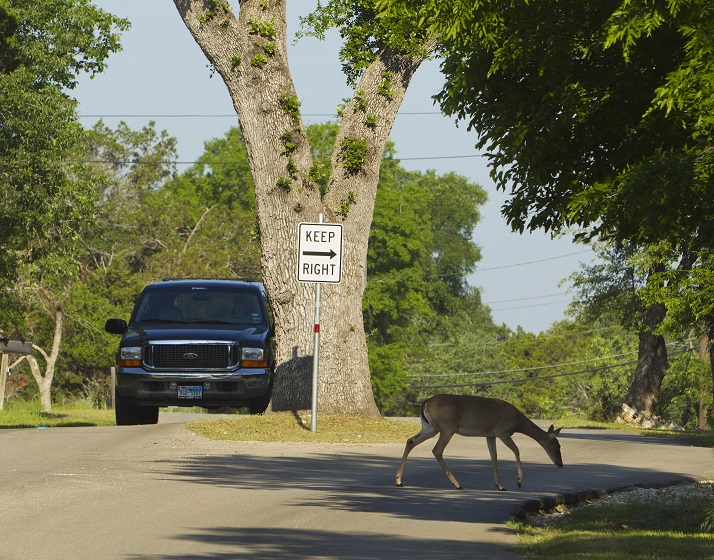Parasites and Skinny Deer
Friday, September 18th, 2015This is Passport to Texas
If spring rains made food plentiful for wildlife—and it did—then what’s up with all the skinny deer?
10—We had a lot of reports this year of thin deer, and some of our initial testing showed that a lot of these deer have a very high load of quote/unquote—stomach worms.
Dr. Bob Dittmar, a veterinarian with Texas Parks and Wildlife, said the wet, warm spring and humid summer created ideal conditions for a parasitic worm-a-palooza that’s affecting white-tails.
15—Most of the ones that have been reported to me have been in more suburban type settings. The habitat may not be really good because there are lots of deer there. And there are lots of eyes on those particular animals and they’re observed much more frequently and closely.
I asked Dr. Dittmar if suburban homeowners should be concerned for their family pets if skinny deer roam their neighborhoods.
18— These parasites are for the most part, pretty host specific. So, there’s not a great danger of passing anything from deer to dogs or other domestic pets. One of the things I always caution people: dogs like to eat deer poop. And there can be other things in deer poop besides parasites that could cause some illness in those pets.
Dr. Bob Dittmar says the agency wants to know about these deer, so if you see skinny deer, contact your regional office of Texas Parks and Wildlife or your local biologist. Find information on the Texas Parks and Wildlife website.
The Wildlife and Sport Fish Restoration Program supports our series.
For Texas Parks and Wildlife, I’m Cecilia Nasti.



 Passport to Texas is a
Passport to Texas is a  Passport to Texas is made available by:
Passport to Texas is made available by: